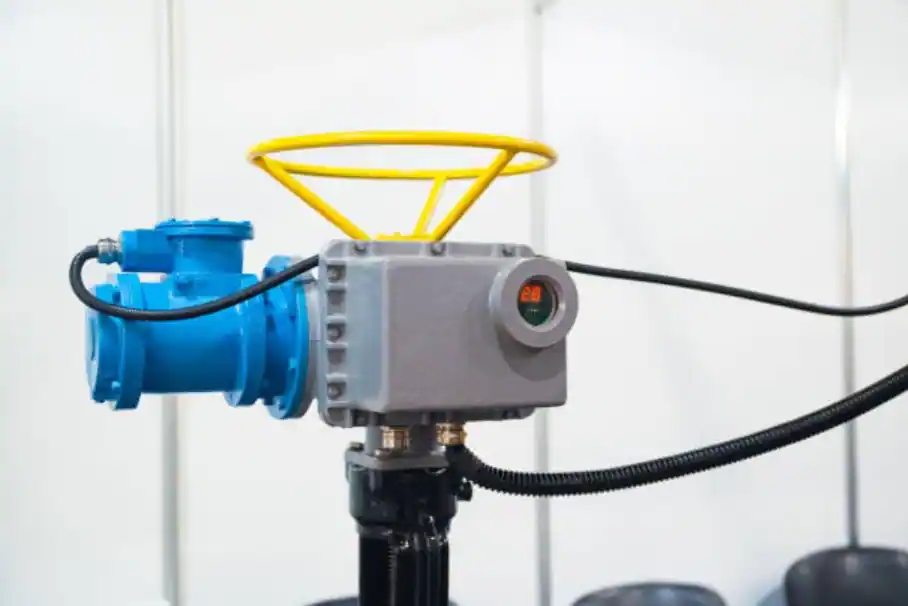In the world of industrial operations—whether in oil and gas, water treatment, chemical processing, or power generation—precision, control, and safety are paramount. One essential component that plays a crucial role in achieving these goals is the automatic gate valve. These valves have evolved to become vital tools in controlling the flow of liquids, gases, and slurries in a wide range of industries.
This article explores how automatic gate valves enhance both safety and efficiency in industrial processes, and why they are increasingly favored over manual alternatives.
What Are Automatic Gate Valves?
A gate valve is a type of valve that opens by lifting a gate or wedge out of the path of the fluid. Traditionally, these valves are operated manually using a handwheel or lever. However, in an automatic gate valve, the gate is controlled electronically, pneumatically, or hydraulically, allowing for remote operation and automation within a system.
Automatic gate valves can be integrated into control systems and programmable logic controllers (PLCs), enabling them to respond to real-time data and operate with minimal human intervention.
Enhancing Safety in Industrial Operations
One of the most significant benefits of automatic gate valves is their contribution to improved safety in hazardous or high-pressure environments.
1. Remote Operation Reduces Risk to Personnel
In industries where exposure to toxic chemicals, high temperatures, or pressurized gases can be dangerous, remote operation is a game-changer. Automatic gate valves allow workers to control the flow from a safe distance, minimizing the need for physical presence in dangerous zones.
2. Fail-Safe Mechanisms
Many automatic gate valves are designed with fail-safe features, such as spring-return actuators or emergency shut-off capabilities. These features help the valve default to a safe position (open or closed) in the event of a power failure or system malfunction, preventing potential leaks, spills, or explosions.
3. Real-Time Monitoring and Alerts
When integrated with industrial monitoring systems, automatic valves can track pressure, temperature, and flow rates. If an anomaly is detected—such as overpressure or backflow—the system can immediately trigger a valve closure, stopping the process before it becomes dangerous.
Boosting Efficiency and Performance
In addition to enhancing safety, automatic gate valves also offer several efficiency advantages that streamline industrial operations.
1. Precise Flow Control
Automatic gate valves can be adjusted with high precision, ensuring that optimal flow rates are maintained. This leads to improved process consistency, higher product quality, and reduced waste in manufacturing or treatment systems.
2. Reduced Downtime
Automated valves can operate faster than manual ones and are capable of functioning 24/7 without fatigue. This results in fewer production delays, faster cycle times, and less downtime for valve maintenance, especially in continuous process industries.
3. Lower Labor Costs
By reducing the need for manual monitoring and adjustment, automatic valves help lower operational costs. One operator can manage multiple valves from a central control room, improving overall plant productivity.
4. Integration with Smart Systems
Today’s industrial environments often utilize Industrial Internet of Things (IIoT) technologies. Automatic gate valves can be embedded with sensors and connected to centralized systems, allowing for data-driven decision-making and predictive maintenance.
Applications Across Various Industries
Automatic gate valves are used in a wide range of sectors due to their reliability and performance:
-
Oil & Gas: Control of crude oil, natural gas, and refined products in high-pressure pipelines.
-
Water Treatment: Managing flow in municipal and industrial water/wastewater systems.
-
Power Plants: Regulating steam, cooling water, and fuel supply lines.
-
Chemical Plants: Handling corrosive or hazardous chemicals safely and efficiently.
-
Pharmaceuticals: Ensuring sterile and consistent flow in production lines.
Each of these industries demands precision, durability, and safety—and automatic gate valves deliver on all fronts.
Choosing the Right Automatic Gate Valve
When selecting an automatic gate valve for your application, several factors should be considered:
-
Valve Material: Choose corrosion-resistant materials like stainless steel or brass for chemical applications.
-
Actuation Type: Decide between electric, pneumatic, or hydraulic actuators based on your control system and power availability.
-
Fail-Safe Configuration: Ensure the valve has appropriate safety mechanisms for your process.
-
Integration Compatibility: Confirm the valve can communicate with your existing SCADA or PLC systems.
-
Maintenance Requirements: Look for valves with self-cleaning or low-maintenance designs if frequent servicing is a concern.
Working with a reputable manufacturer or engineering consultant can help ensure your valve system is tailored to your specific operational needs.
Conclusion
In an era where automation and safety are critical drivers of industrial success, automatic gate valves have emerged as indispensable components. Their ability to enhance worker safety, improve process control, and integrate seamlessly into digital systems makes them a smart investment for any facility aiming for high performance and reliability.
By replacing manual operations with smart, responsive automation, businesses can not only protect their workforce but also achieve greater efficiency, lower costs, and better product quality. Whether you’re managing a petrochemical plant or a municipal water treatment facility, automatic gate valves can take your operations to the next level.
